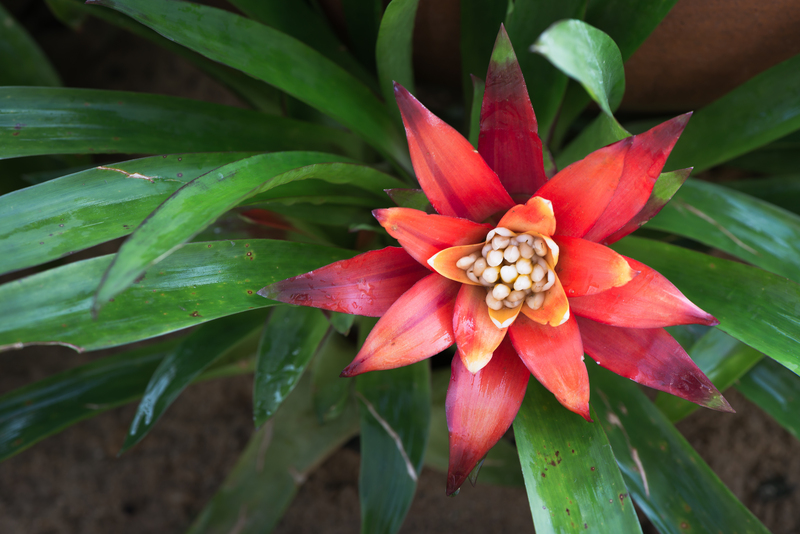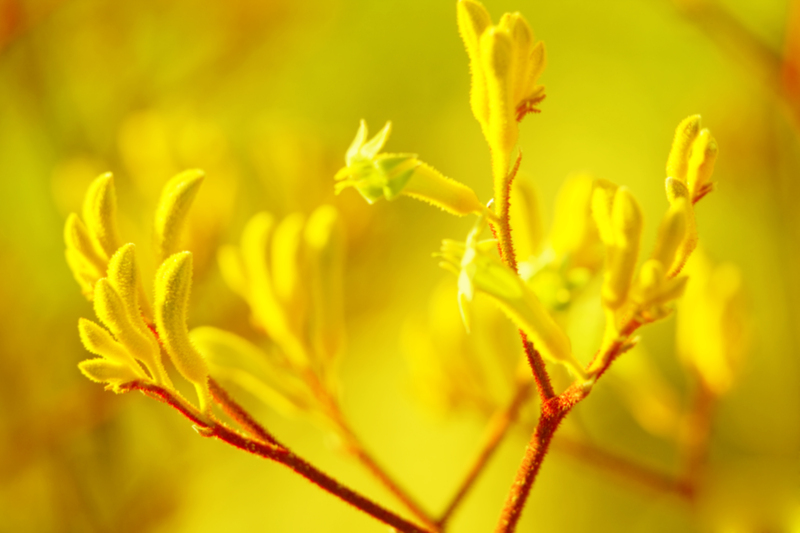Cultivating Success: 9 Essential Gardening Tips for Newbies
Posted on 13/08/2025
Cultivating Success: 9 Essential Gardening Tips for Newbies
Embarking on a gardening journey can feel both exciting and overwhelming for beginners. While nurturing your garden is rewarding, achieving thriving plants requires know-how and patience. Whether you envision a vibrant flower bed or a lush vegetable patch, these expert gardening tips for newbies are your gateway to cultivating success. Let's unlock your gardening potential with these essential strategies!
Why Gardening Tips for Beginners Matter
Gardening is an art and a science. Without the right guidance, many novice gardeners face pitfalls--poor plant growth, pest infestations, or lackluster harvests. Understanding the basics of gardening creates a strong foundation for success. These top gardening tips for newbies will not only boost your confidence but ensure your plants thrive.
- Save time and resources by avoiding common errors.
- Promote healthy, vigorous plant growth from the start.
- Enjoy a fulfilling, stress-relieving hobby with visible results.
If you're ready to transform your thumb from brown to green, these essential gardening tips will help you get started.

1. Choose the Right Gardening Location
The foundation of a successful garden begins with choosing the best spot in your yard or balcony. Sunlight, drainage, and accessibility are key factors. Most vegetables and flowering plants require at least six hours of direct sunlight daily. Observe your space throughout the day to pinpoint areas with maximum sunlight exposure.
- Ensure easy access to water for frequent irrigation needs.
- Avoid low-lying areas where rainwater pools--soggy soil can damage roots.
- Start small: A 4x4 foot plot or a group of containers is ideal for learning without becoming overwhelmed.
Pro Tip: If you have limited space, consider vertical gardening or using raised beds--both are perfect for urban environments.
2. Test and Prepare Your Soil
Healthy soil is the backbone of any flourishing garden. Not all soil is created equal; some may be too sandy, clay-heavy, or lacking in essential nutrients. Before planting, test your soil's pH and composition using a DIY kit or by sending a sample to your local cooperative extension.
- Amend poor soil with organic matter such as compost, well-rotted manure, or peat moss.
- Balance the pH--most plants prefer a slightly acidic to neutral pH (6-7).
- Aerate the soil by turning it over and removing large rocks or debris.
Healthy soil boosts nutrient uptake, root strength, and plant resilience.
3. Select Easy-to-Grow Plants
Choose plant varieties that are well-suited to your local climate and soil conditions. Start with resilient, beginner-friendly options that will give you fast wins and build your gardening confidence.
- Herbs: Basil, mint, oregano, and parsley are compact and forgiving.
- Vegetables: Lettuce, radishes, beans, and zucchinis thrive with basic care.
- Flowers: Marigolds, sunflowers, and zinnias bring instant color and are easy to maintain.
Tip: Read plant tags and instructions. They provide crucial guidance on sun, water, and spacing requirements.
4. Master the Art of Proper Watering
Overwatering and underwatering are common mistakes every new gardener makes. For healthy, thriving plants, consistency is crucial. It's generally better to water deeply and less often rather than shallowly and frequently.
- Water in the early morning to reduce evaporation and prevent plant diseases.
- Check soil moisture by pressing a finger about two inches deep--if it feels dry, it's time to water.
- Mulch around plants retains moisture and regulates temperature.
Tip: Use a soaker hose or drip irrigation system for efficient, targeted watering.
5. Understand and Control Weeds
Weeds compete with your plants for nutrients, water, and sunlight. Learning effective weed control strategies is essential for a flourishing, healthy garden.
- Mulch: Spread organic mulch, like wood chips or straw, to suppress weed growth.
- Hand-pull weeds regularly, especially after watering when soil is soft.
- Use weed barriers: Landscape fabrics can prevent weeds in pathways or under raised beds.
Persistent effort will keep unwanted plants under control and allow your garden to shine.
6. Feed Your Plants Properly
Plants need more than just sunlight and water--they require essential nutrients. While compost and organic amendments go a long way, specific plants may benefit from additional fertilization.
- Use balanced fertilizers: Choose options with N-P-K (Nitrogen, Phosphorus, Potassium) indicated on the label.
- Read feeding instructions carefully--overfertilizing can burn plants or disrupt soil health.
- Compost tea or worm castings are organic, nutrient-rich choices for regular feeding.
Well-fed plants have stronger roots, better blooms, and higher yields.
7. Stay on the Lookout for Pests and Diseases
One of the most important beginner gardening tips is vigilance against pests and diseases. Early detection prevents widespread damage and keeps your plants thriving.
- Inspect plants weekly for signs of pests (holes, chewed leaves) or disease (discoloration, spots).
- Hand-pick pests or use natural deterrents, such as neem oil or diatomaceous earth.
- Encourage beneficial insects: Ladybugs and lacewings keep aphids and other pests at bay.
- Practice good hygiene: Remove dead or diseased foliage promptly.
Healthy gardens bounce back quickly from minor setbacks with regular care.
8. Practice Regular Maintenance and Pruning
A beautifully kept garden doesn't happen by accident. Routine maintenance keeps your plants vigorous and your beds tidy.
- Prune dead or damaged stems to encourage new growth.
- Harvest produce frequently--ripe vegetables and herbs taste better and stimulate further production.
- Stake tall or vining plants to prevent breakage and support healthy growth.
Consistent pruning prevents overcrowding, boosts air circulation, and reduces disease risk.
9. Record and Learn from Your Gardening Journey
The most successful gardeners continually learn from each season. Keep a simple gardening journal or log to track plantings, harvests, weather, and pest issues.
- Record varieties and planting dates for future reference.
- Note successes and failures--you'll spot patterns over time.
- Use photos to document growth and changes.
Your gardening notes become an invaluable resource, leading to smarter decisions and better yields next year.

Bonus Tip: Connect with Local Gardeners and Resources
Gardening communities offer a wealth of knowledge for first-time gardeners. Join local gardening clubs, Facebook groups, or attend workshops for personalized advice tailored to your region's unique challenges. Many garden centers and nurseries are also happy to help new gardeners find the right supplies and solutions.
Remember: Every garden--and gardener--is unique. Embrace trial and error as part of the creative, growing process.
Conclusion: Your Path to Gardening Success
With these nine essential tips for gardening newbies, you have the information and confidence needed to plant, nurture, and harvest successfully. Don't be discouraged by early obstacles--even seasoned gardeners make mistakes! With each passing season, you'll develop better instincts and enjoy more bountiful results.
- Start small and celebrate every milestone.
- Stay curious--ask questions and seek out new gardening ideas.
- Most importantly, enjoy the journey as you watch your garden--and yourself--grow!
Now that you've learned top gardening tips for beginners, it's time to roll up your sleeves and dig in. Happy gardening!
FAQ: Common Questions from New Gardeners
1. How much time does a beginner's garden require?
Start with 2-3 hours a week for watering, weeding, and harvesting. As you gain experience, it will feel effortless!
2. Do I need fancy tools to start gardening?
No! A sturdy trowel, hand pruners, gloves, and a watering can are sufficient for most small gardens.
3. What if my first plants die?
Don't give up! Every failed plant is a lesson. Refer to your garden journal for insights, tweak your approach, and try again.
Ready to cultivate your gardening success?
Put these essential gardening tips for newbies into practice and watch your skills flourish with every season. May your beds be bountiful, your blooms bright, and your gardening journey joy-filled!



